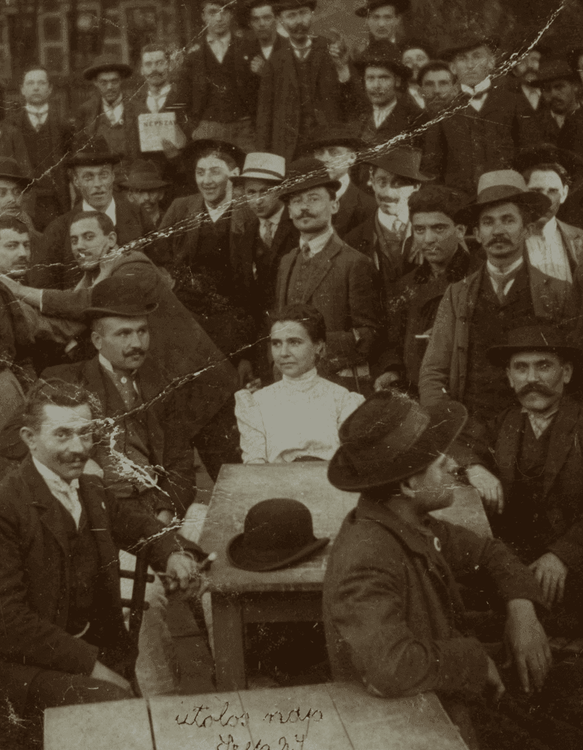Renée Heves
Renée Heves (1902–1944) was a labour activist whose work in early twentieth-century Transylvania intertwined gender, ethnicity, and class struggle. Born in Tasnád (then Hungary), in 1902, Heves grew up in an Orthodox Jewish family that limited her education to six years of primary school. Determined to break away from the constraints of her upbringing, she left her hometown in the interwar period, when Transylvania had become part of Romania. In Kolozsvár (Cluj) she became an advocate for Hungarian-speaking working women, particularly those now disadvantaged because of their Hungarian ethnic background.
Joining the Trade Union of Private Clerks and Trade Workers in 1931 and later becoming a member of the underground Communist Party of Romania, Heves worked to educate and organize women. She led trade union learning circles; delivered lectures on Marxism and Leninism; and contributed to various Hungarian-language newspapers, making labour rights a central theme of her journalism. She also called for women’s active participation in the struggles of the Hungarian minority in Romania.
Heves believed that for the Hungarian minority in Romania, the “woman question” – the debate over women’s rights and roles in society – was inextricably linked to ethnic and class struggles. In the mid-1930s, as right-wing authoritarianism spread in Romania and across Europe, she warned that nationalist and fascist ideologies would harm both minority rights and women’s emancipation. She argued that only democratic states could safeguard the rights of women and ethnic minorities. For Heves, women had to become politically active not only to advance their own rights but also to protect the broader rights of the Hungarian minority in Romania.
Throughout her career, Heves fought for labour rights, education, and social protections for working women. She wrote about the daily struggles of factory workers and peasant women, insisting that their unpaid domestic labour was just as vital as wage work. Writing on an ethnographic exhibition about the everyday lives of agrarian workers, she noted:
Little happiness, little time to rest, nameless desire, and endless work are what come to life within the walls of the museum. The life of the people. The life of our women.
For her, these were not problems left behind in the past – she saw them in the lives of the women that surrounded her. She opposed the Catholic Church’s conservative stance on women’s role in society, questioning its condemnation of women’s wage work outside the house. She also criticized the limited suffrage rights granted to women in Romania’s 1938 constitution, urging women to demand full political participation.
While Heves initially focused on Hungarian-speaking women workers, by the late 1930s, she began addressing the consequences of antisemitic discrimination. She recognized that Jewish working women were doubly marginalized – as workers and as members of a persecuted religious community. When Kolozsvár was reabsorbed into Hungary in 1940, Heves faced increasing persecution due to Hungarian antisemitic legislation. She could no longer publish because of the country’s discriminatory laws, and her activism was severely restricted. Despite this, she refused to go into hiding. In April 1944, just months before her death in the Nazi concentration camp Auschwitz, she wrote: “I have never hidden my Jewishness. It belonged to my way of life, to my inner culture, to the development of my personality. I have never felt ashamed of it”.
Even as the fascist regime stripped her of her rights and ultimately her life, Heves remained committed to her convictions. In her activism, labour, gender, and minority rights issues were closely connected. Heves believed that true social progress could only be achieved when workers, particularly women, organized and fought collectively. She called on women to take part in political life, recognizing that without their participation, both class and minority struggles would remain unresolved. Her life was cut short by the Holocaust, but her work and words continue to inform those who advocate for social justice today.


